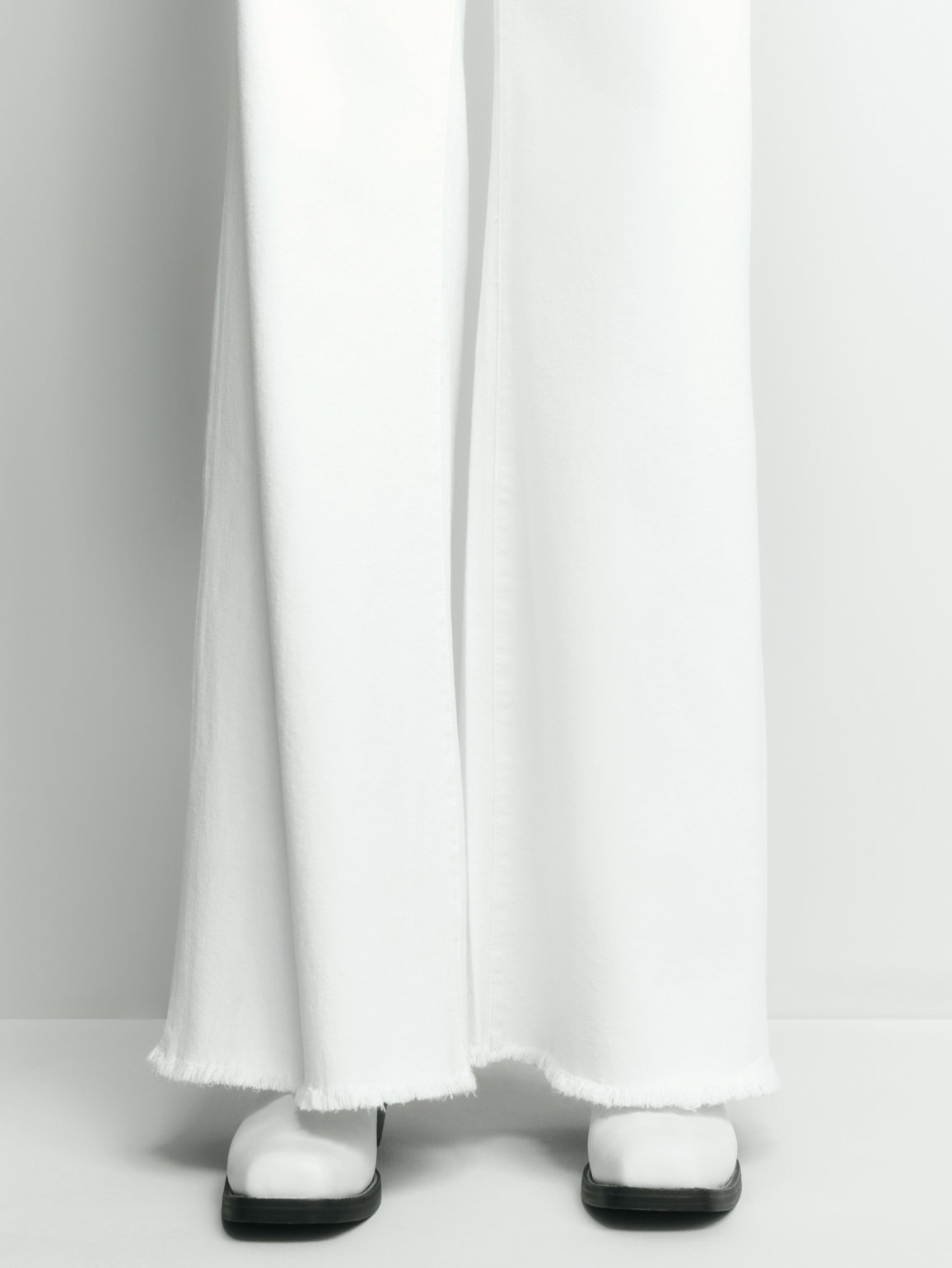However, the conventional denim production process has come under scrutiny due to its significant environmental impact. From excessive water consumption to hazardous chemical dyes and unethical working conditions, this industry has faced ongoing challenges in reducing its carbon footprint.
How sustainable is your favorite pair of denim?
As global sales of jeans continue to rise, the market value for denim fabric is estimated to be worth 27.1 billion U.S. Dollars in 2022 and is expected to increase to over 35 billion U.S. dollars by the next 4 years, it is crucial that we assess the sustainability and ethical practices within this industry. A fabric primarily composed of cotton, acquires its iconic appearance using indigo-dyed vertical warp threads and white horizontal weft threads, which is a unique weaving technique that keeps the inner denim layer white while the outer layer is blue, giving denim its sense of beloved timeless style. However, beneath the surface of this booming demand lies a series of detrimental impacts associated with the jeans industry.
More than 10,000 liters of water are used, and 16.2kg of CO2 are released as manufacturing emissions to produce one single pair of denim. According to latest studies, emissions linked to the production of denim are comparable to flying a plane around the globe 2,372 times or driving a petrol-operated car more than 21 billion miles. The production of denim clothing results in wastage of approximately 20% of fabric – unfortunately, a significant portion of this waste is either dumped in landfills or burned, leading to the emission of greenhouse gases, and causing environmental harm. Moreover, the dyeing and washing procedures are particularly problematic, as the chemicals used render the water unsuitable for reuse. Consequently, vast quantities of wastewater contaminated with toxic substances are released into the environment, often leading to the discoloration of rivers in denim-producing regions and endangers the health of humans, plants, and animals in the surrounding areas.

Not all denim is bad denim – one brand is revolutionizing the industry.
Thankfully, not all denim has such detrimental impacts; a growing number of brands are now focusing on sustainable denim production, aiming to address these issues and contribute to a greener future for our planet – ultimately creating a circular economy. Amid this sustainability crisis, DL1961 emerges as a leading denim brand that prioritizes ethical practices and sets a new standard for sustainable production. DL1961 is a family-owned brand, creating premium denim with sustainability as core since 2008. Overseeing the entire process from fiber to finished garment, each jeans is an example of state-of-the-art denim production, raising the bar, not only for ourselves, but for the denim industry at large. DL1961 takes immense pride in its water conservation efforts, with an impressive 98% of water being recycled throughout its production processes and more.
Sarah Ahmed, the brand’s CEO & Co-founder comments “We aim to create denim that lessens our ongoing impact on the environment for our upcoming generations – we invest in state-of- the-art fabric, sustainability practices and technologies and we recycle post-consumer waste. We aim to set the bar for other denim producers to follow in our practices in creating long-lasting denim without a long-term impact on our planet.”
“At DL1961, we start our production by shredding pounds of old denim into smaller pieces and weaving them into new yarn with specialized eco-friendly fibers that have high-performance stretch – ultimately creating a product that fits perfectly, is durable, resilient and most importantly – sustainable.”

One of DL1961’s key strategies in minimizing its environmental impact is the use of recycled and regenerative fibers. The brand incorporates post-consumer waste, such as plastic bottles, into its denim production, reducing the demand for raw materials. Additionally, DL1961 implements regenerative farming practices, which focus on restoring and improving soil health. The brand also understands the importance of transitioning to renewable energy sources to combat climate change; from embracing solar power to reducing reliance on fossil fuels, DL1961 minimizes greenhouse gas emissions associated with traditional energy sources. The brand also employs clean dyeing technologies that minimizes the use of harmful substances and ensures that its denim is free from hazardous chemicals, providing a safer and more sustainable alternative for consumers and its employees. “Sustainability isn’t just a hot topic or an overused term anymore – it’s a global concept that can be embraced by all individuals regardless of their background,” Sarah comments. “We aim to create pieces of fashion that empower the modern-day man and woman at accessible costs and with a brand narrative that encourages a wider discussion about our fashion choices and the standards that we set for our favorite brands – and ourselves. As a brand that’s headquartered in the U.S., we’re still seeing more and more people in the Middle East who are leaning towards social consumerism and actively seeking brands that have a social impact,” she concludes.
By upholding these standards, DL1961 ensures that its sustainability efforts extend beyond environmental considerations and encompass social responsibility to let consumers feel less guilt when purchasing their new favorite denim – it’s all about looking great, feeling good and helping our environment one pair of denim at a time.

ALSO READ: THE DIGITAL CLOTHING INDUSTRY: HOW CAN WE PUSH AGAINST THE STATUS QUO?




